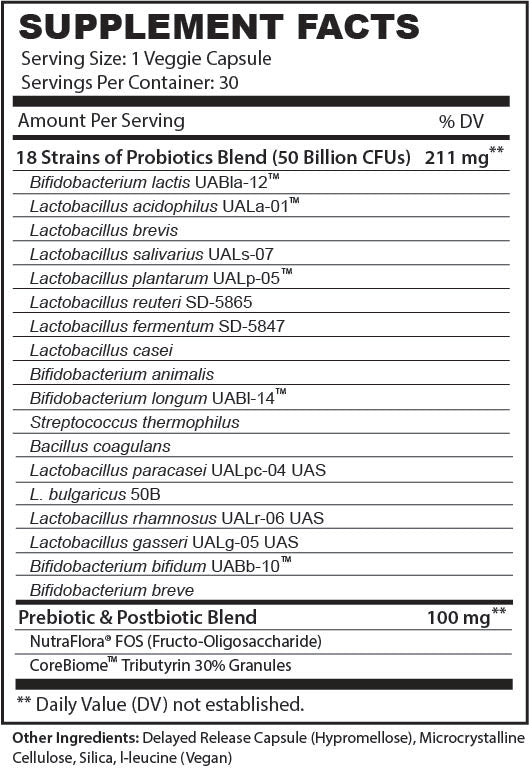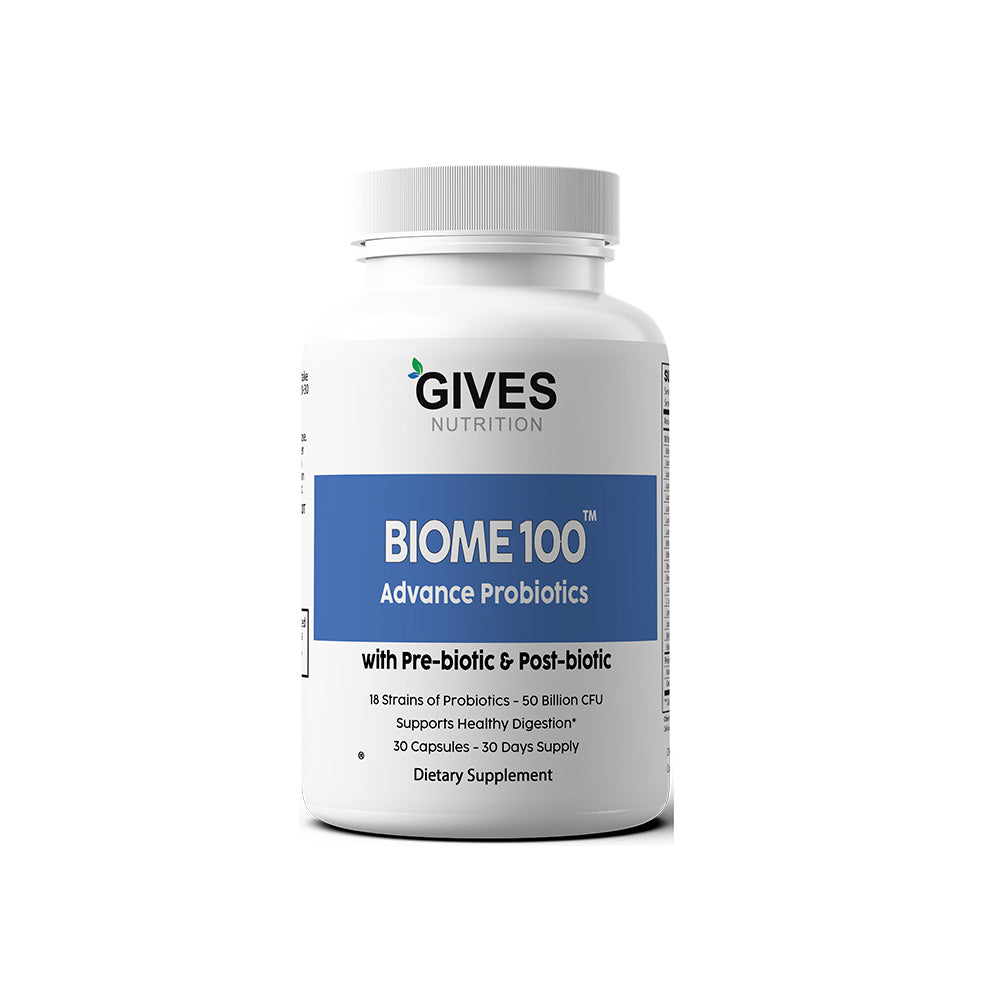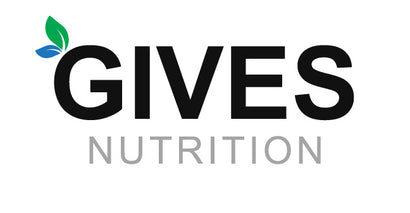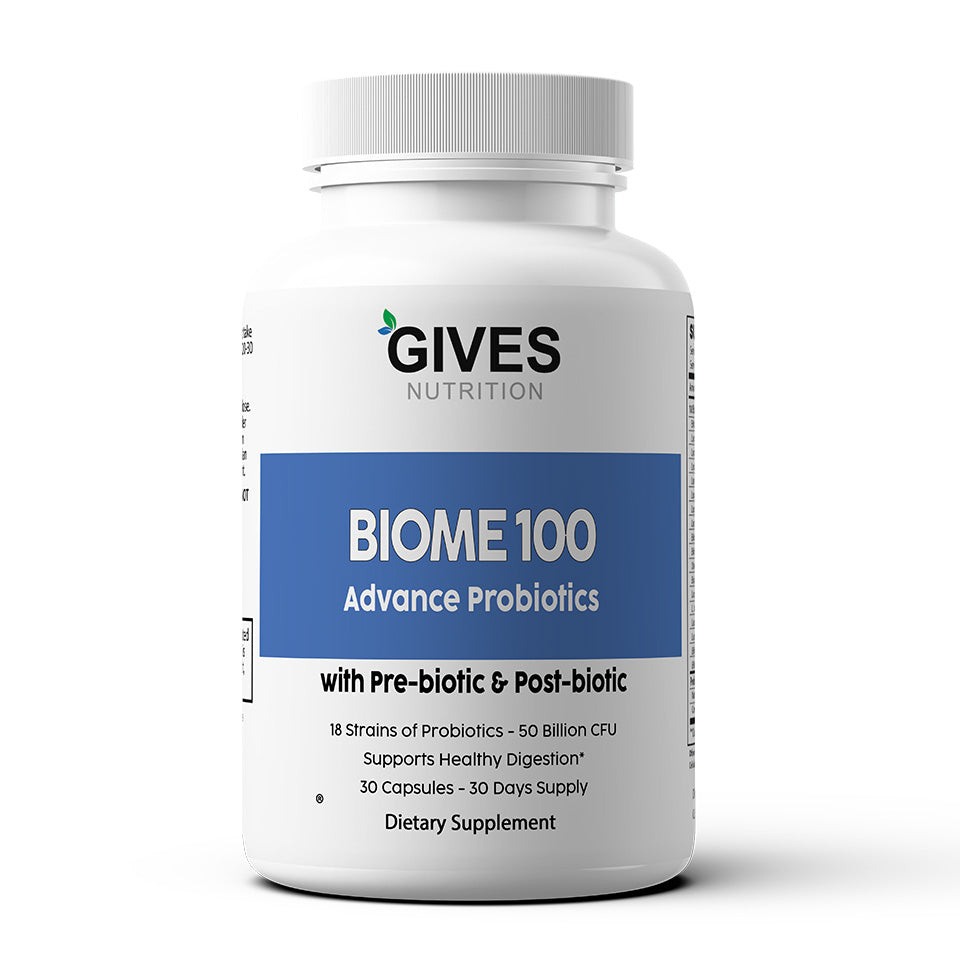Biome 100 Advance Probiotics
With 50 Billion live cultures per serving, and 18 robust and diverse strains. Contains NutraFlora® FOS, a prebiotic fiber that supports the growth and survival of good bacteria in the gut.
With CoreBiome® Tributyrin, a postbiotic fiber that improves absorption of probiotics.
Formulated in delayed veggie capsules designed to get the probiotics through the stomach acid, and into the small intestine; where they are most beneficial.
Vegan-friendly, Non-GMO, Gluten Free, Soy Free, Preservative Free. Contains soil-based probiotics. Shelf-stable for 2 years so there is no need for refrigeration.
- Promotes a balanced gut microbiome
- Encourages normal digestive functioning
- Stimulates healthy immune response
Add 6 Bottles 32% Discount $96 Savings

One of the most important components of the human GI tract is its microbiome which consists of thousands of bacterial strains and numbering in the trillions. This community of microorganisms is necessary for healthy digestion because it facilitates the conversion and absorption of vital nutrients. Gut microbiome also acts as a protective layer against corrosive acids, pathogens, and toxins [2, 5,16].
.
Unfortunately, stressors such as aging, environmental contaminants, diet, stress, and medication can destabilized a gut microbiome [1]. For example, the frequent use of antibiotics against harmful bacteria also decrease the number of good bacteria in the GI tract [3]. Even more, particular diets can also impact gut microbiome in a negative way. For instance, the frequent consumption of high saturated fat adversely affects gut microbiome by promoting the growth of harmful bacteria [13].
.
Fortunately, probiotics or beneficial live bacteria from food and supplements can help reestablish a healthy gut microbiome. Fermented food such as yogurt and kefir are a good source of beneficial bacteria [3]. For a standardized quantity and specific strains of probiotics, dietary supplements are a good option. Gut bacteria also thrives on prebiotics such as fiber, so regularly consuming probiotics with prebiotics can support a healthy gut [4].

Gives Nutrition Biome 100
With 50 Billion live cultures per serving, and18 robust and diverse strains. Contains NutraFlora® FOS, a prebiotic fiber that supports the growth and survival of good bacteria in the gut.
With CoreBiome® Tributyrin, a postbiotic fiber that improves absorption of probiotics.
Formulated in delayed veggie capsules designed to get the probiotics through the stomach acid, and into the small intestine; where they are most beneficial.
- Promotes a balanced gut microbiome
- Encourages normal digestive functioning
- Stimulates healthy immune response




